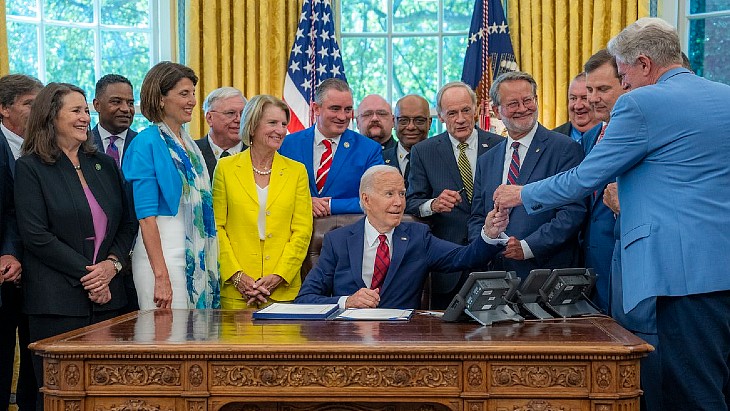Canada bolsters emergency preparedness and response
.jpg)
An IAEA team of experts – comprising five experts from Australia, France, Romania, the UK and the USA, as well as one IAEA staff member - carried out an Emergency Preparedness Review (EPREV) follow-up mission from 26 to 30 June. It was aimed at assessing the progress made by Canada in implementing the recommendations provided during the 2019 EPREV mission.
EPREV missions focus on the arrangements and capabilities to prepare for and respond to nuclear and radiological emergencies. EPREV missions are based on the IAEA safety standards in nuclear and radiological emergency preparedness response.
The initial EPREV review team identified several strengths during the mission, including a well-developed and mature emergency and preparedness response system in place across all levels of government. It also said the government had developed a streamlined approach for the timely processing of liability claims relating to nuclear or radiological emergencies. However, it recommended the government should include "justification and optimisation" in the protection strategy, and should develop a detailed monitoring strategy to optimise the use of monitoring capabilities and resources. It suggested the government should also develop detailed arrangements for formally terminating a nuclear emergency.
To address the recommendations received, Canada developed a national action plan.
The follow-up review was requested by the Canadian government to assess the progress made since the initial EPREV mission. It was hosted by Health Canada and the Canadian Nuclear Safety Commission (CNSC).
The IAEA team acknowledged the significant efforts made by the Canadian authorities to enhance their nuclear emergency preparedness and response since the initial EPREV mission. The team found that Canada has "demonstrated a strong commitment to implementing the recommendations provided by the IAEA and has made notable progress in strengthening its EPR framework".
The EPREV team identified several strengths during the mission, including: Canada is developing a software tool to enable the most effective and efficient use of available radiation monitoring resources in response to a nuclear or radiological emergency; and Canada decided to further align with the reference levels, generic criteria and operational intervention levels provided in the IAEA Safety Standards.
The team also encouraged the Canadian authorities to continue their efforts to further strengthen emergency preparedness and response through, for example: improving Health Canada's Monitoring Strategy Tool by motivating more stakeholders to complete the tools' questionnaires; and all organisations should reinforce the distinction between the termination of their emergency response and the overall termination of the emergency.
"Canada is implementing the IAEA's Safety Standards in a commendable fashion," said Carlos Torres Vidal, the Director of the IAEA’s Incident and Emergency Centre. "By hosting the EPREV follow-up mission, Canada has taken a leadership role among nations with mature and complete nuclear power programmes, showing its commitment to continuous improvement."
"Canada developed an action plan to address the EPREV findings of 2019, including the creation of a federal-provincial-territorial working group to coordinate a national strategy on environmental radiation monitoring in an emergency and formalizing a working group on waste management," noted CNSC Vice-President and Chief Science Officer Peter Elder. "We are keen on continuing our collaboration with our domestic and international colleagues, and on upholding safety and security as paramount priorities."










_88592.jpg)

